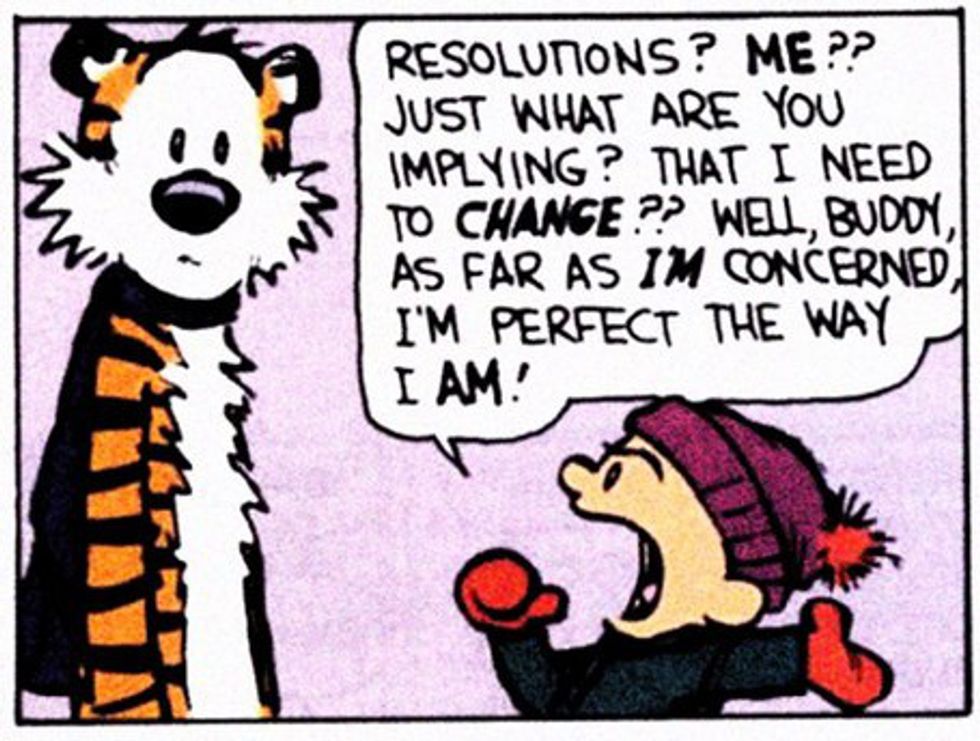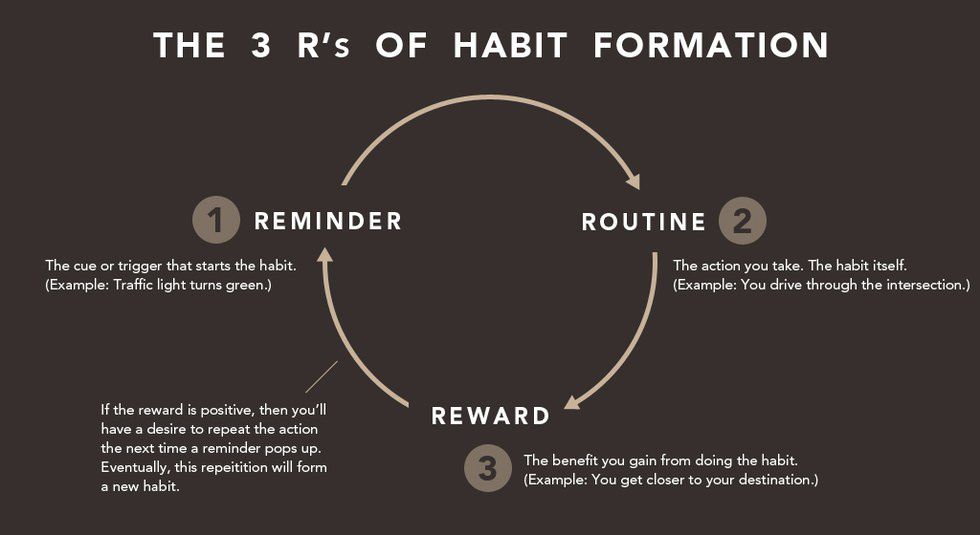Making a New Year's Resolution is something that definitely feels good in the moment. Having that conviction and enthusiasm for self-improvement is the first step but the steps that follow are what often cause people to trip and stumble.
Maybe it's just that thought that'll pop into our minds after a few days of the new habit where we'll say, "it's okay if I just give myself a break today". Or maybe "this is just an exception so it's fine". These kind of thoughts will eventually lead to no improvement but rather an agonizing "oh well, next time".
So the real question to ask is: how do I create a New Year's Resolution that I can fulfill?
Well, let's try to understand what a resolution really is. It's not just a statement; it's a habit. According to Psychology Today, a habit is defined as a "fixed way of thinking, willing, or feeling acquired through previous repetition of a mental experience".
Things like brushing your teeth, exercising, and/or eating certain meals are all habitual. It's only through the process of "habit formation" do we change our habits and in turn, work towards a new goal or resolution.
To reform our habits, we need environmental cues. This means we need to acknowledge the specific action and what around us is the stimulus for the action. After we are conscious about this, we replace it with a new action.
For example, if you have a New Year's Resolution to stop eating sugary treats on weekdays but pick up a cookie, this process will be ignited.
First, you will acknowledge that you are attempting to eat a cookie and retrace back to your New Year's Resolution. Then, think of why you desire the cookie. It may seem ridiculous to think about this but sometimes people will eat simply because they are bored, are craving something sweet, or are just hungry. Once you do this, think of a substitute. If you're hungry, drink a glass of water. If you're craving something sweet, have some yogurt or a spoon of peanut butter. By recognizing your actions, you can put the cookie down and replace the habit with a new and healthier one that you reward yourself about taking.
It's hard to remember sometimes but that's part of the process. You need to be conscious about your actions and turn it into a routine. After establishing this new habit and continuously performing it, you reach "automatacity" which is when you perform an action with less thought to it. You're at the point where doing the action doesn't require much cognition and is instead muscle memory or just a well-established habit.
New Year's Resolutions are things people will engage but many feel like it is worthless after a week has past. However, it all comes down to understanding how we think and molding that thinking into taking action.
By acknowledging your actions and making the effort to reform, you can reform yourself and achieve your resolution.























